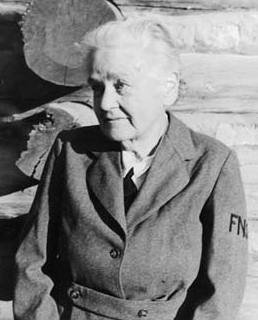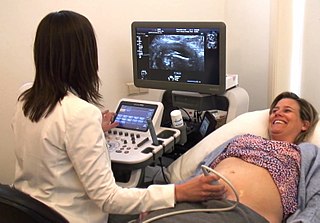Related Research Articles

Female genital mutilation (FGM), also known as female genital cutting, female genital mutilation/cutting (FGM/C) and female circumcision, is the ritual cutting or removal of some or all of the external female genitalia. The practice is found in some countries of Africa, Asia and the Middle East, and within their respective diasporas. As of 2023, UNICEF estimates that "at least 200 million girls... in 31 countries", including Indonesia, Iraq, Yemen, and 27 African countries including Egypt—had been subjected to one or more types of female genital mutilation.

The Pulitzer Prize for Breaking News Photography is one of the American Pulitzer Prizes annually awarded for journalism. From 2000 it has used the "breaking news" name but it is considered a continuation of the Pulitzer Prize for Spot News Photography, which was awarded from 1968 to 1999. Prior to 1968, a single Prize was awarded for photojournalism, the Pulitzer Prize for Photography, which was replaced in that year by Pulitzer Prize for Spot News Photography and Pulitzer Prize for Feature Photography.

The Pulitzer Prize for Feature Photography is one of the American Pulitzer Prizes annually awarded for journalism. It recognizes a distinguished example of feature photography in black and white or color, which may consist of a photograph or photographs, a sequence or an album.
Winners of the Pulitzer Prizes for 1996 were:

Efua Dorkenoo, OBE, affectionately known as "Mama Efua", was a Ghanaian-British campaigner against female genital mutilation (FGM) who pioneered the global movement to end the practice and worked internationally for more than 30 years to see the campaign "move from a problem lacking in recognition to a key issue for governments around the world."

Edna Adan Ismail is a nurse midwife, activist, and was the first female Foreign Minister of Somaliland from 2003 to 2006. She previously served as Somaliland's Minister of Family Welfare and Social Development.

The Frontier Nursing Service (FNS) provides healthcare services to rural, underserved populations since 1925, and educates nurse-midwives since 1939.

Mary Carson Breckinridge was an American nurse midwife and the founder of the Frontier Nursing Service (FNS), which provided comprehensive family medical care to the mountain people of rural Kentucky. FNS served remote and impoverished areas off the road and rail system but accessible by horseback. She modeled her services on European practices and sought to professionalize American nurse-midwives to practice autonomously in homes and decentralized clinics. Although Breckinridge's work demonstrated efficacy by dramatically reducing infant and maternal mortality in Appalachia, at a comparatively low cost, her model of nurse-midwifery never took root in the United States.

Dame Mary Rosalind Paget, DBE, ARRC, was a noted British nurse, midwife and reformer. She was the first superintendent, later inspector general, of the Queen's Jubilee Institute for District Nursing, which was renamed as the Queen's Institute of District Nursing in 1928 and as the Queen's Nursing Institute in 1973.

A monthly nurse is a woman who looks after a mother and her baby during the postpartum or postnatal period. The phrase is now largely obsolete, but the role is still performed under other names and conditions worldwide.
Ruth Watson Lubic, CNM, EdD, FAAN, FACNM, is an American nurse-midwife and applied anthropologist who pioneered the role of nurse-midwives as primary care providers for women, particularly in maternity care. Lubic is considered to be one of the leaders of the nurse-midwifery movement in the United States.
Obstetrical nursing, also called perinatal nursing, is a nursing specialty that works with patients who are attempting to become pregnant, are currently pregnant, or have recently delivered. Obstetrical nurses help provide prenatal care and testing, care of patients experiencing pregnancy complications, care during labor and delivery, and care of patients following delivery. Obstetrical nurses work closely with obstetricians, midwives, and nurse practitioners. They also provide supervision of patient care technicians and surgical technologists.

Zepherina Philadelphia Smith was an English nurse and social reformer who promoted increased education and training for midwives. Her work led to the Royal College of Midwives.

Comfort Iyabo Amah Momoh, is a British midwife who specializes in the treatment of female genital mutilation (FGM). Born in Nigeria, Momoh is a member of the British FGM national clinical group, established in 2007 to train health professionals in how to deal with the practice. Until 2017 she served as a public-health specialist at Guy's and St Thomas' NHS Foundation Trust in London. She is the editor of Female Genital Mutilation (2005).
Renée C. Byer (1958) was born in Yonkers, New York.
Maude E. Callen was a nurse-midwife in the South Carolina Lowcountry for over 60 years. Her work was brought to national attention in W. Eugene Smith's photo essay "Nurse Midwife," published in Life on December 3, 1951.
Midwives in the United States assist childbearing women during pregnancy, labor and birth, and the postpartum period. Some midwives also provide primary care for women including well-woman exams, health promotion, and disease prevention, family planning options, and care for common gynecological concerns. Before the turn of the 20th century, traditional midwives were informally trained and helped deliver almost all births. Today, midwives are professionals who must undergo formal training. Midwives in the United States formed the Midwifery Education, Regulation, and Association task force to establish a framework for midwifery.

A midwife is a health professional who cares for mothers and newborns around childbirth, a specialization known as midwifery.

Ronnie Sue Lichtman, is a midwife, educator, writer and advocate for women's health. She has published widely for both lay and professional audiences. The Chair of the Midwifery Education Program at The State University of New York (SUNY) Downstate Medical Center in New York City, she earned a Ph.D. in sociomedical sciences from Columbia University Graduate School of Arts and Sciences, and her MS in Maternity Nursing with a specialization in midwifery from Columbia University School of Nursing. She previously directed the midwifery programs at Columbia University and Stony Brook University.
Elizabeth Sager Sharp CNM, DrPH, FAAN, FACNM, was an American nurse and midwife who specialized in maternal and newborn health. In 1999, she received the American College of Nurse-Midwives' Hattie Hemschemeyer Award.
References
- ↑ Fischer, Heinz-Dietrich (2014). Foreign Correspondents Report From Africa: Pulitzer Prize Winning Articles and Pictures. Pulitzer Prize Panorama. Vol. 8. Zurich: LIT Verlag. p. 121. ISBN 9783643904416 . Retrieved 18 March 2018.
- 1 2 "Academics Win Several 1996 Pulitzer Prizes". Chronicle of Higher Education . April 19, 1996. Retrieved 4 August 2021.
- 1 2 3 "Stephanie Welsh". Mansfield OB GYN. Retrieved 23 March 2018.
- ↑ Brennan, Elizabeth A.; Clarage, Elizabeth C. (1999). Who's who of Pulitzer Prize Winners. Phoenix: Oryx Press. p. 213. ISBN 1573561118 . Retrieved 23 March 2018.
- ↑ Bussche, Eric Vanden (21 May 2005). "Accelerated programs make nursing attractive career move". Palm Beach Post. p. 4D.
- ↑ "Affiliate Officers". American College of Nurse-Midwives. Retrieved 24 March 2018.
- ↑ "Stephanie Welsh". Pulitzer Prizes. Retrieved 23 March 2018.
- ↑ Tenore, Mallary Jean (2012-04-16). "Sara Ganim, 24, wins Pulitzer for coverage of Penn State sex abuse scandal". Poynter. Retrieved 2018-04-08.
- ↑ "1996 Stephanie Welsh PNS2-AL". World Press Photo. Retrieved 24 March 2018.